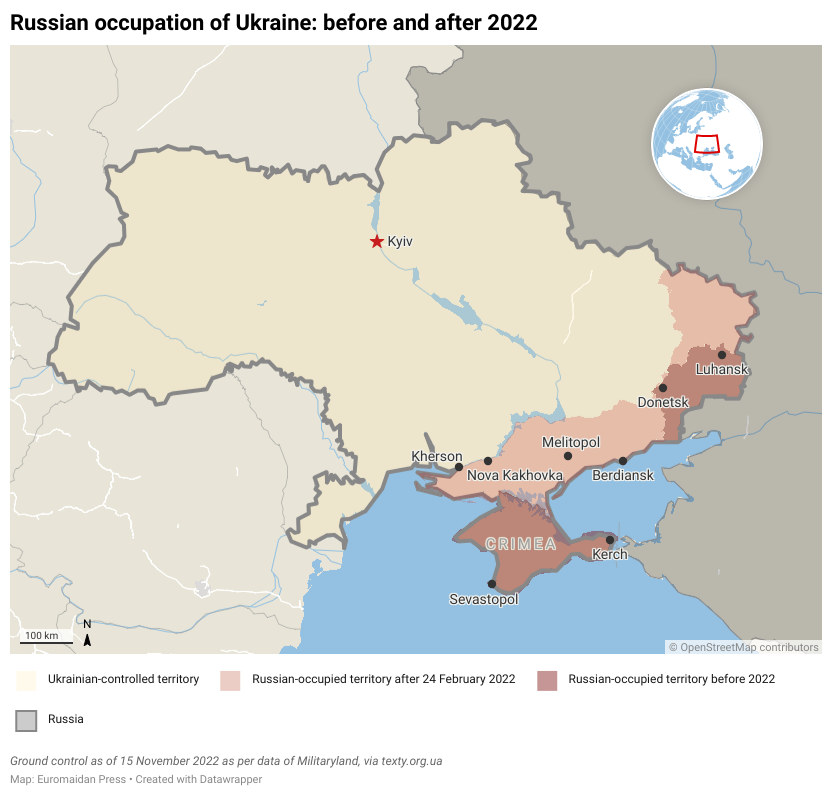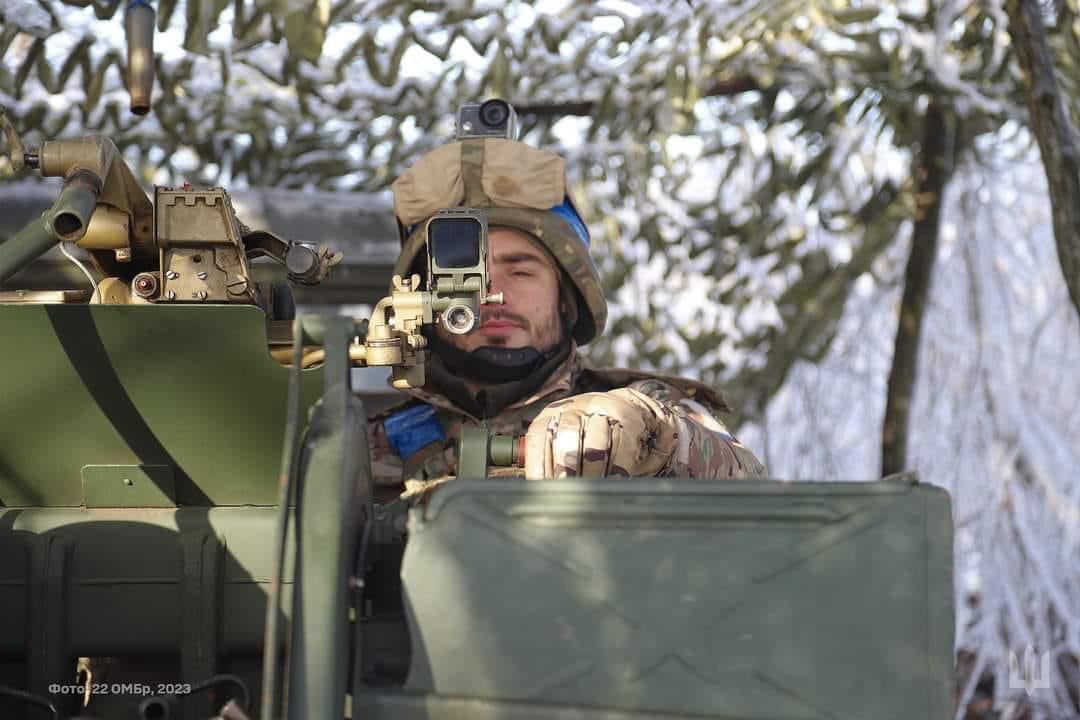Amid growing hints that Ukraine's western partners are contemplating pressuring it to surrender land to Russia for an elusive end to Russia's war, the US-based Institute for Study of War has come out with a report about why that is a misguided policy -- and why only the total liberation of Ukraine in its 1991 borders will ensure it independence.
Here are its main arguments.
1) Russia remains committed to subjugating Ukraine
The study argues that Russian leadership, including Putin and top officials, have thoroughly indoctrinated the Russian people with the notion that Ukraine is a historical part of Russia that must be brought under Moscow's control. Putin has made reclaiming Ukraine central to his 2024 re-election campaign and revisionist historical narratives are being spread in Russian schools and media.
Therefore, even if the current war ends, a future Russian regime is likely to renew aggression against Ukraine to achieve these ingrained national objectives. Freezing the conflict short of total liberation risks enabling Russia to eventually fulfill its irredentist aims -- and sustaining peace is possible only if the Russia-Ukrainian frontier is defensible long-term.
2) The current lines are indefensible
With major Ukrainian population centers like Kherson, Zaporizhzhia, and Kharkiv near the current frontlines, Ukraine would have to maintain a fully mobilized military just to hold static defensive lines. This would be enormously expensive and socially disruptive over the long run.

In contrast, the pre-February 2022 borders provided strategic depth that allowed for a more efficient defense based on absorbing initial attacks and then counterattacking. The current lines afford no space to absorb and delay assaults before reserves can arrive.
Furthermore, a ceasefire would enable Russia to optimize its force posture for future offensives in a way active fighting now prevents.
Moreover, without the Dnipro River defensive line and with Kherson under threat, defending Ukraine's southern coast and economy would become exponentially more difficult if Russia retains occupied territory in the south.
The report concludes that retaining any occupied territory irreparably compromises Ukraine's ability to defend itself:
"The lines as they are now, in either case, would leave it to Putin and his successors to determine the financial and social cost Ukraine and its Western backers must bear for Ukraine’s continued survival, and that cost would likely be very high."
3) Concessions damage core international principles
The report argues that recognizing Russia's territorial seizures in Ukraine, even in exchange for peace, would undermine critical international laws banning wars of conquest, ethnic cleansing, and other violations of human rights. While negotiations may be underway, the enormous moral and ethical costs of appeasing Russian aggression by allowing it to retain occupied lands must be considered.
4) Crimea and Donbas are strategically and economically vital
If Crimea remains under Russian control, Ukraine's ability to defend key southern cities like Kherson and Odesa will be dramatically compromised, and its economy critically weakened by loss of access to maritime trade and Black Sea energy reserves.
Thus, for both military and economic reasons, Ukraine liberating Crimea is strategically vital and cannot be bargained away.
Meanwhile, the Donbas region does not offer Ukraine strategic advantages, as its large cities Luhansk and Donetsk are close to the Russian border and thus require a full-fledged Ukrainian fully-mobilized force ready to defend them at all times. However, allowing Russia to retain occupied territory in the Donbas region would deprive Ukraine of vital mining and industrial assets that are critical to its economic future. Furthermore, with cities like Mariupol directly on the current frontlines, accepting the current lines in the east irreparably damages Ukraine's defensive and economic viability.
In conclusion, the report argues that for Ukraine to achieve lasting security and prosperity, it must regain all occupied territory lost since February 2022. Anything short of total liberation of its internationally recognized borders critically undermines Ukraine's military, economic, and moral position. There is no acceptable alternative to the complete restoration of Ukraine's territorial integrity.
Related:
- “Do not despair.” Ex-minister Zagorodnyuk on lessons from Ukraine’s counteroffensive
- Five realistic scenarios of war in Ukraine in 2024: GLOBSEC report

